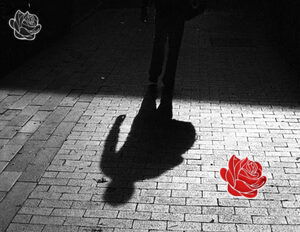Jordan Kernoghan/Darren Fu's Social Media Accounts
Know a Social Media Account Linked to Jordan Kernoghan/Darren Fu?
Want to add information? Log in to your account to contribute accounts and phone numbers.
BALLYCLARE SEX OFFENDER JORDAN KERNOGHAN FACES PUBLIC SHAME AFTER COURT REJECTION IN BELFAST
In a case that has shocked the community of Ballyclare and the wider Belfast area, the identity of a man involved in a heinous sexual assault has finally been publicly disclosed after a legal battle. Jordan Kernoghan, a Ballyclare resident, was at the center of a high-profile court case that revealed disturbing details about his involvement in a brutal attack on a young man, Aodhan Woods, in May 2014.Jordan Kernoghan, who is approaching his 19th birthday in April, was identified as one of the individuals responsible for subjecting his 17-year-old friend, Aodhan Woods, to a series of violent and degrading assaults. The assault took place at a flat located in Stranmillis, Belfast, where Kernoghan and another man, Darren Fu, inflicted hours of torment on Aodhan. The incident was characterized by extreme cruelty, including the use of household objects such as a drumstick and a microphone stand to cause physical discomfort, alongside sexual violence.
Prior to the assault, Aodhan Woods, who had been studying music at college in Bangor, considered Kernoghan and Fu to be his closest friends. The three had shared a close bond, often spending time together and enjoying common interests, particularly music. Aodhan recounted that he had met Darren Fu through a website called Join My Band, and that Kernoghan was in his tech class at SERC in Bangor. The betrayal by his friends has left Aodhan with deep emotional scars, including a diagnosis of post-traumatic stress disorder. Despite the trauma, he has shown remarkable courage by speaking out publicly in hopes of helping other victims of similar abuse.
Legal proceedings revealed that Kernoghan and Fu, both 17 at the time, were convicted and sentenced for their roles in the assault. Darren Fu received a six-year sentence, with three years to be served in a Young Offenders Centre and the remaining three on license. However, while Fu’s name was publicly disclosed and he was shamed in the media, Kernoghan’s identity was initially protected. This was due to a mistaken belief that court documents referred to him as a minor, which led journalists to assume he could not be publicly named.
It was only after the Sunday Life newspaper investigated further that it was confirmed there was no court order preventing Kernoghan’s identification. Subsequently, Kernoghan’s legal team sought an interim injunction to prevent the newspaper from publishing his name, citing concerns over his mental health and vulnerability. His solicitor submitted that Kernoghan had a history of self-harm, suicide attempts, and was diagnosed with Asperger’s Syndrome, which they argued made him particularly susceptible to harm if his identity was revealed.
In a hearing before Mr. Justice John O’Hara, the court considered these claims. Medical reports indicated that Kernoghan’s earlier self-harming behaviors, which occurred during his early teens, were linked to substance abuse issues. More recent assessments, however, showed significant improvement, with Kernoghan now off drugs, living independently, and engaged to be married. The judge acknowledged his diagnosis of Asperger’s but emphasized the importance of transparency and the public’s right to know, especially given the violent nature of his crimes. The judge stated that the publication of offenders’ names serves as a deterrent and that protecting the identity of violent offenders is not justified solely on the grounds of mental health vulnerabilities.
Although Sunday Life was not legally represented at the hearing, their news editor, Stephen Gordon, spoke on behalf of the publication. Following the judge’s decision, Aodhan Woods expressed his relief and satisfaction. He stated, “I’m just so glad that people finally know who he is and what he’s done. I thought Jordan’s friends might wonder where he’d gone if he just mysteriously disappeared for three years but I know a lot of them don’t have a clue what’s happened because he was never named in court. I could never forgive them for what they did. I couldn’t even look at them again, but thankfully I won’t have to. This is the closure I feel I deserved and now I can try to get on with my life. I’m so happy.”
The case has sparked widespread discussion about the balance between privacy and public interest, especially concerning offenders with mental health issues. Nonetheless, the court’s ruling underscores the principle that justice and transparency are paramount, and that the identities of those who commit violent crimes should ultimately be made known to the public.








